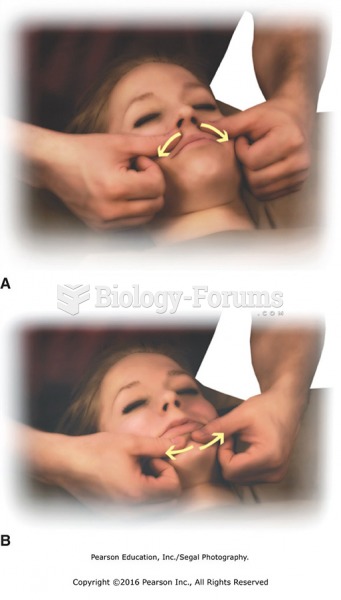|
|
|
A seasonal flu vaccine is the best way to reduce the chances you will get seasonal influenza and spread it to others.
Cytomegalovirus affects nearly the same amount of newborns every year as Down syndrome.
Carbamazepine can interfere with the results of home pregnancy tests. If you are taking carbamazepine, do not try to test for pregnancy at home.
The average person is easily confused by the terms pharmaceutics and pharmacology, thinking they are one and the same. Whereas pharmaceutics is the science of preparing and dispensing drugs (otherwise known as the science of pharmacy), pharmacology is the study of medications.
The largest baby ever born weighed more than 23 pounds but died just 11 hours after his birth in 1879. The largest surviving baby was born in October 2009 in Sumatra, Indonesia, and weighed an astounding 19.2 pounds at birth.
 The respiratory system. (a) Sagittal section of the head and neck, revealing the organs of the upper
The respiratory system. (a) Sagittal section of the head and neck, revealing the organs of the upper
 Knead the upper trapezius with one or two hands. Lift, squeeze, and release the soft tissues in a ...
Knead the upper trapezius with one or two hands. Lift, squeeze, and release the soft tissues in a ...




